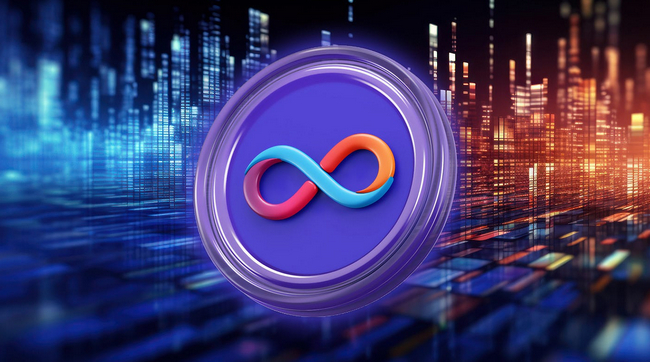-
 Bitcoin
Bitcoin $83,674.3428
-0.53% -
 Ethereum
Ethereum $1,813.5906
-0.62% -
 Tether USDt
Tether USDt $0.9998
0.00% -
 XRP
XRP $2.1545
0.86% -
 BNB
BNB $592.5788
-0.96% -
 Solana
Solana $120.8785
-1.15% -
 USDC
USDC $1.0000
0.00% -
 Dogecoin
Dogecoin $0.1697
-0.98% -
 Cardano
Cardano $0.6537
-1.90% -
 TRON
TRON $0.2368
-0.76% -
 Chainlink
Chainlink $12.9261
-0.67% -
 UNUS SED LEO
UNUS SED LEO $9.1443
-0.53% -
 Toncoin
Toncoin $3.2481
-4.54% -
 Stellar
Stellar $0.2537
-2.71% -
 Avalanche
Avalanche $17.7579
-3.08% -
 Shiba Inu
Shiba Inu $0.0...01236
-0.34% -
 Sui
Sui $2.2190
-2.35% -
 Hedera
Hedera $0.1625
-1.43% -
 Litecoin
Litecoin $82.9615
-2.05% -
 Polkadot
Polkadot $3.9649
-2.34% -
 MANTRA
MANTRA $6.2698
-0.27% -
 Bitcoin Cash
Bitcoin Cash $304.5065
0.54% -
 Dai
Dai $1.0002
0.01% -
 Bitget Token
Bitget Token $4.4617
-1.61% -
 Ethena USDe
Ethena USDe $0.9993
0.02% -
 Pi
Pi $0.6421
27.82% -
 Hyperliquid
Hyperliquid $12.0636
-0.56% -
 Monero
Monero $214.2889
-1.30% -
 Uniswap
Uniswap $5.8802
-0.78% -
 OKB
OKB $52.5690
5.00%
How to obtain ICP coin? ICP coin purchase and acquisition method complete graphic tutorial
Acquiring ICP coins through reputable exchanges or staking options provides access to network governance, blockchain security, and potential financial gains, making it an attractive investment opportunity for those seeking exposure to the Internet Computer ecosystem.
Oct 03, 2024 at 07:18 am

How to Get ICP Coins: A Comprehensive Guide
Internet Computer (ICP) is the native token of the Internet Computer blockchain. It enables users to participate in the network's governance and secure the blockchain. Acquiring ICP coins provides access to these benefits and the potential for financial gains.
Method 1: Buying ICP on Exchanges
- Choose a reputable cryptocurrency exchange: Binance, Coinbase, Kraken, and Gemini are popular choices.
- Create an account: Follow the exchange's instructions to create an account.
- Fund your account: Deposit funds using fiat currency (e.g., USD, EUR) or other cryptocurrencies.
Place a buy order:
- Navigate to the ICP trading pair.
- Specify the amount of ICP you want to buy.
- Set a limit order (specify a price) or a market order (buy at the current market price).
- Confirm and process the order: The exchange will match your order with a seller.
- Store your ICP: Once the order is executed, the ICP coins will be deposited into your exchange wallet. Consider transferring them to a secure personal wallet for long-term storage.
Method 2: Staking or Node Management
- Acquire DFINITY neuron: The DFINITY neuron is a software application that allows you to manage your ICP and participate in the governance of the network.
- Stake ICP coins: Deposit ICP coins into your neuron and select a data center to stake them. Staking contributes to the security of the network and rewards you with additional ICP over time.
- Contribute to node operations: As an ICP holder, you can apply to operate a node that supports the blockchain. Successfully operating a node earns you rewards in ICP.
Additional Tips
- Monitor market conditions and do your own research before making any purchases.
- Consider using a hardware wallet for secure ICP storage.
- Participate in airdrops or bounty programs to earn additional ICP.
- Be aware of potential scams and fraudulent activities.
- Seek professional advice if necessary to understand the risks and benefits of ICP investment.
Disclaimer:info@kdj.com
The information provided is not trading advice. kdj.com does not assume any responsibility for any investments made based on the information provided in this article. Cryptocurrencies are highly volatile and it is highly recommended that you invest with caution after thorough research!
If you believe that the content used on this website infringes your copyright, please contact us immediately (info@kdj.com) and we will delete it promptly.
- A Solana Investor Who Previously Gained $10M from Dogecoin Is Now Shifting Attention to a New Meme Coin Valued at Just $0.003333
- 2025-04-06 09:40:15
- Decentralized Physical Infrastructure Networks (DePIN) Are Catching the Eye of Traditional Equity Investors with Their Revenue Growth
- 2025-04-06 09:40:15
- GUN Token Launches with a Frenzy, Attracting More Than 1.7 Million Participants
- 2025-04-06 09:35:12
- Cardano (ADA) Starts April on Shaky Ground, Threat of Breakdown Looms if $0.65 Fails
- 2025-04-06 09:35:12
- CryptoIndex.com: Introducing the World's First Web3-Native Index Protocol
- 2025-04-06 09:30:13
- Bitcoin's unique appeal
- 2025-04-06 09:30:13
Related knowledge

What is Ethereum’s Slashing mechanism and how to punish malicious behavior?
Feb 20,2025 at 03:08am
Key PointsOverview of slashingDifferent types of slashing in EthereumIncentives and consequences of slashingIdentifying and reporting slashed validatorsOngoing discussions and potential improvementsEthereum's Slashing Mechanism: Punishing Malicious BehaviorEthereum's slashing mechanism is an essential tool for ensuring network security and punishing mal...

What is the verifier node of Ethereum and how to become a verifier?
Feb 19,2025 at 06:00pm
The Verifier Node of Ethereum: A Comprehensive GuideKey Points:What is a Verifier Node?How to Become a Verifier NodeResponsibilities and Rewards of a Verifier NodeMinimum Requirements for Becoming a Verifier NodePotential Difficulties in Running a Verifier Node1. What is a Verifier Node?A Verifier Node is an independent entity on the Ethereum network th...

What is Ethereum’s staking, and how to participate and earn money?
Feb 19,2025 at 04:37pm
Key Points:Understanding Ethereum's Staking MechanismSteps to Participate in StakingBenefits and Rewards of StakingSecurity and Risk ConsiderationsTechnical Requirements and Hardware OptionsPotential Challenges and Troubleshooting TipsFAQs on Ethereum StakingWhat is Ethereum's Staking?Proof-of-Stake (PoS) is a consensus mechanism used in blockchain netw...

What is Ethereum’s DAO (Decentralized Autonomous Organization) and how does it work?
Feb 20,2025 at 03:12am
Key PointsDefinition and Structure of a DAOGovernance and Decision-Making in DAOsBenefits and Use Cases of DAOsChallenges and Limitations of DAOsWhat is Ethereum's DAO (Decentralized Autonomous Organization) and How Does It Work?Definition and Structure of a DAOA Decentralized Autonomous Organization (DAO) is an innovative governance and management fram...

What is Ethereum's multi-signature wallet and how to improve security?
Feb 20,2025 at 02:18pm
Key Points:Understanding the Concept of a Multi-Signature WalletBenefits and Drawbacks of Multisig WalletsRequirements for Setting Up a Multisig WalletStep-by-Step Guide to Generating a Multisig WalletImplementing Strategies for Enhanced Security1. Understanding the Concept of a Multi-Signature WalletA multi-signature (multisig) wallet in the Ethereum e...

What is Ethereum's oracle and how to provide data for smart contracts?
Feb 21,2025 at 01:30am
Key Points:Understanding the concept of oracles in EthereumExploring different types of oraclesDetailed guide on how to provide data for smart contractsAddressing potential challenges and considerationsWhat is Ethereum's Oracle?Oracles are crucial components in the Ethereum ecosystem, enabling smart contracts to access real-world data and off-chain even...

What is Ethereum’s Slashing mechanism and how to punish malicious behavior?
Feb 20,2025 at 03:08am
Key PointsOverview of slashingDifferent types of slashing in EthereumIncentives and consequences of slashingIdentifying and reporting slashed validatorsOngoing discussions and potential improvementsEthereum's Slashing Mechanism: Punishing Malicious BehaviorEthereum's slashing mechanism is an essential tool for ensuring network security and punishing mal...

What is the verifier node of Ethereum and how to become a verifier?
Feb 19,2025 at 06:00pm
The Verifier Node of Ethereum: A Comprehensive GuideKey Points:What is a Verifier Node?How to Become a Verifier NodeResponsibilities and Rewards of a Verifier NodeMinimum Requirements for Becoming a Verifier NodePotential Difficulties in Running a Verifier Node1. What is a Verifier Node?A Verifier Node is an independent entity on the Ethereum network th...

What is Ethereum’s staking, and how to participate and earn money?
Feb 19,2025 at 04:37pm
Key Points:Understanding Ethereum's Staking MechanismSteps to Participate in StakingBenefits and Rewards of StakingSecurity and Risk ConsiderationsTechnical Requirements and Hardware OptionsPotential Challenges and Troubleshooting TipsFAQs on Ethereum StakingWhat is Ethereum's Staking?Proof-of-Stake (PoS) is a consensus mechanism used in blockchain netw...

What is Ethereum’s DAO (Decentralized Autonomous Organization) and how does it work?
Feb 20,2025 at 03:12am
Key PointsDefinition and Structure of a DAOGovernance and Decision-Making in DAOsBenefits and Use Cases of DAOsChallenges and Limitations of DAOsWhat is Ethereum's DAO (Decentralized Autonomous Organization) and How Does It Work?Definition and Structure of a DAOA Decentralized Autonomous Organization (DAO) is an innovative governance and management fram...

What is Ethereum's multi-signature wallet and how to improve security?
Feb 20,2025 at 02:18pm
Key Points:Understanding the Concept of a Multi-Signature WalletBenefits and Drawbacks of Multisig WalletsRequirements for Setting Up a Multisig WalletStep-by-Step Guide to Generating a Multisig WalletImplementing Strategies for Enhanced Security1. Understanding the Concept of a Multi-Signature WalletA multi-signature (multisig) wallet in the Ethereum e...

What is Ethereum's oracle and how to provide data for smart contracts?
Feb 21,2025 at 01:30am
Key Points:Understanding the concept of oracles in EthereumExploring different types of oraclesDetailed guide on how to provide data for smart contractsAddressing potential challenges and considerationsWhat is Ethereum's Oracle?Oracles are crucial components in the Ethereum ecosystem, enabling smart contracts to access real-world data and off-chain even...
See all articles





















































































